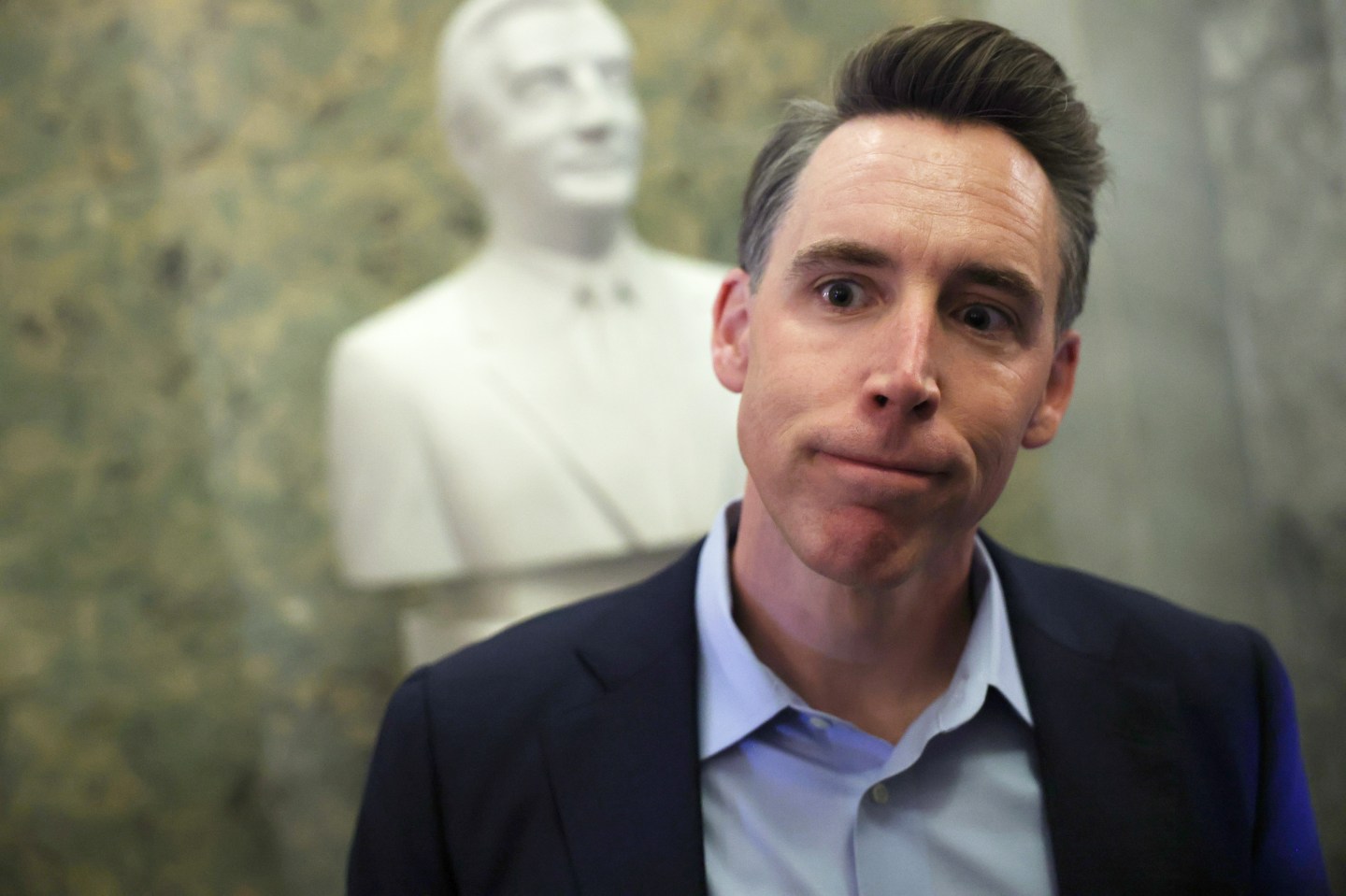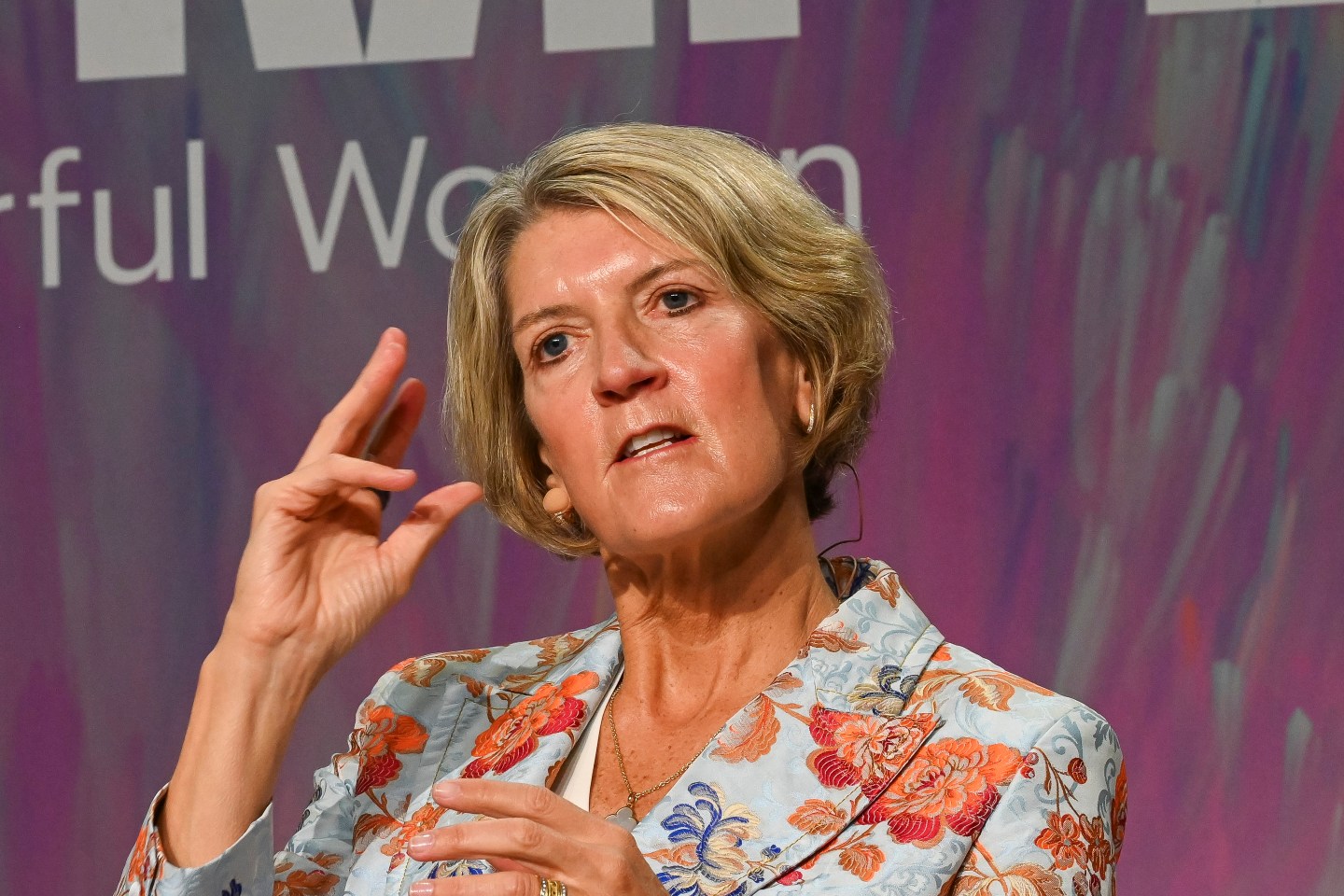Good morning. Data may be the new oil, but it’s still a right mess.
It was a delight this week to moderate a Fortune conversation about the right and wrong ways to prepare corporate data for AI.
We covered quite a bit: change management, technical and organizational complexity, policy and governance, and my favorite bit, using AI to fix the problems stopping you from deploying AI. (Mind blown.)
Many thanks to Cleveland Clinic chief digital officer Rohit Chandra, Mastercard chief data officer Andrew Reiskind, and EXL chief digital and AI officer Anand “Andy” Logani for their enthusiastic participation—and, of course, EXL for helping us make it happen.
You can watch the entire session here, but for those short on time, a haiku:
Change can be combat
Move mountains for an outcome
Trust is by design
The news below. Have a wonderful weekend. —Andrew Nusca
Want to send thoughts or suggestions to Fortune Tech? Drop a line here.
Top Republicans reject Trump proposal to ban state AI regulation

A proposal from President Donald Trump to bar U.S. states from regulating AI companies has come up against some surprising opposition: his own political party.
Gov. Ron DeSantis, Sen. Josh Hawley, Gov. Sarah Huckabee Sanders, and other prominent Republicans say Trump has abandoned his oft-mentioned base in favor of Big Tech companies that want to remove barriers to the highly lucrative AI boom.
The White House is reportedly mulling an executive order that would “potentially withhold federal funds from states who attempt to pass AI laws,” according to a Financial Times report.
The move comes as the administration presses for a federal framework for AI and grapples with issues that would be influenced by the executive order.
Among them: Anxiety about AI-related white collar job losses among the Fortune 500, concerns about AI chatbots and mental health, and bipartisan support for online child safety laws that AI has exacerbated.
“Sneaking it into the defense bill is an insult to voters,” DeSantis wrote on social media. “Drop the preemption plan now and protect our kids and communities,” Sanders wrote.
That’s not to say Trump doesn’t have support in certain corners of his party.
Sen. Ted Cruz has been a vocal proponent. House Majority Leader Steve Scalise floated the idea of tacking it onto a defense bill. And Rep. Jay Obernolte, who has put a great deal of energy toward all things AI, said he believes it’s not within states’ jurisdiction to regulate the technology.
“Congress needs to get its act together,” he said in May. —AN
Verizon’s largest-ever layoff has begun
It’s as if Verizon had asked investors: Can you hear me now?
The world’s No. 2 telecom company by revenue has begun notifying more than 13,000 employees that they will no longer work at Verizon.
It’s the company’s largest-ever round of layoffs.
“Our current cost structure limits our ability to invest significantly in our customer value proposition,” new CEO Dan Schulman wrote in a company memo distributed Thursday. “We must reorient our entire company around delivering for and delighting our customers.”
Verizon had about 100,000 people before the cut.
As I wrote in a previous edition of this newsletter, Verizon has its work cut out for it. Amid stiff competition, it has been bleeding customers—7,000 consumer postpaid mobile in its latest quarter—at a time when analysts expected growth.
“Change is necessary, but it can be difficult,” Schulman wrote, adding: “It’s important that we direct our energy and resources to set Verizon on a path to success.” —AN
Yes, there really is a Google product called ‘Nano Banana Pro’
It’s a Silicon Valley skit turned real.
Hot on the heels of the debut of its Gemini 3 Pro AI model, Google has released a new image generation and editing model.
Its government name is Gemini 3 Pro Image. Its street name? Nano Banana Pro, a nod to an accidental codename that was simply too memorable to resist.
The new model succeeds Gemini 2.5 Flash Image—which arrived in August—and professes to use reasoning and “real-world knowledge” to better visualize information.
In what ways? More legible text in images, “factually accurate diagrams,” and more realistic product placements, Google says.
In short, a few steps closer to the production-ready imagery you’d expect for infographics, advertisements, logotypes, etc.
Google’s new top banana is globally available for use in its Gemini app, but it will also pop up in a number of other places—in “AI Mode” for U.S. subscribers, in NotebookLM for paid users, in Google Slides and Vids in Workplace, and so on. —AN
More tech
—OpenAI, Foxconn partner on U.S.-made data center server racks.
—Aylo asks Big Tech for device-based age verification. Pornhub’s parent sent letters to Apple, Google, Microsoft.
—Meet Memo, Sunday Robotics’ home robot for folding clothes and loading the dishwasher.
—U.S. national labs get AI equipment upgrades thanks to new deals with tech suppliers.
—Meta fined €479 million for data protection violations. Nearly 90 Spanish digital media companies will be compensated.
—Are quantum sensors a viable GPS alternative? The U.S. and its allies would like to know.
—And the bestselling game of 2025 is…EA’s Battlefield 6.












